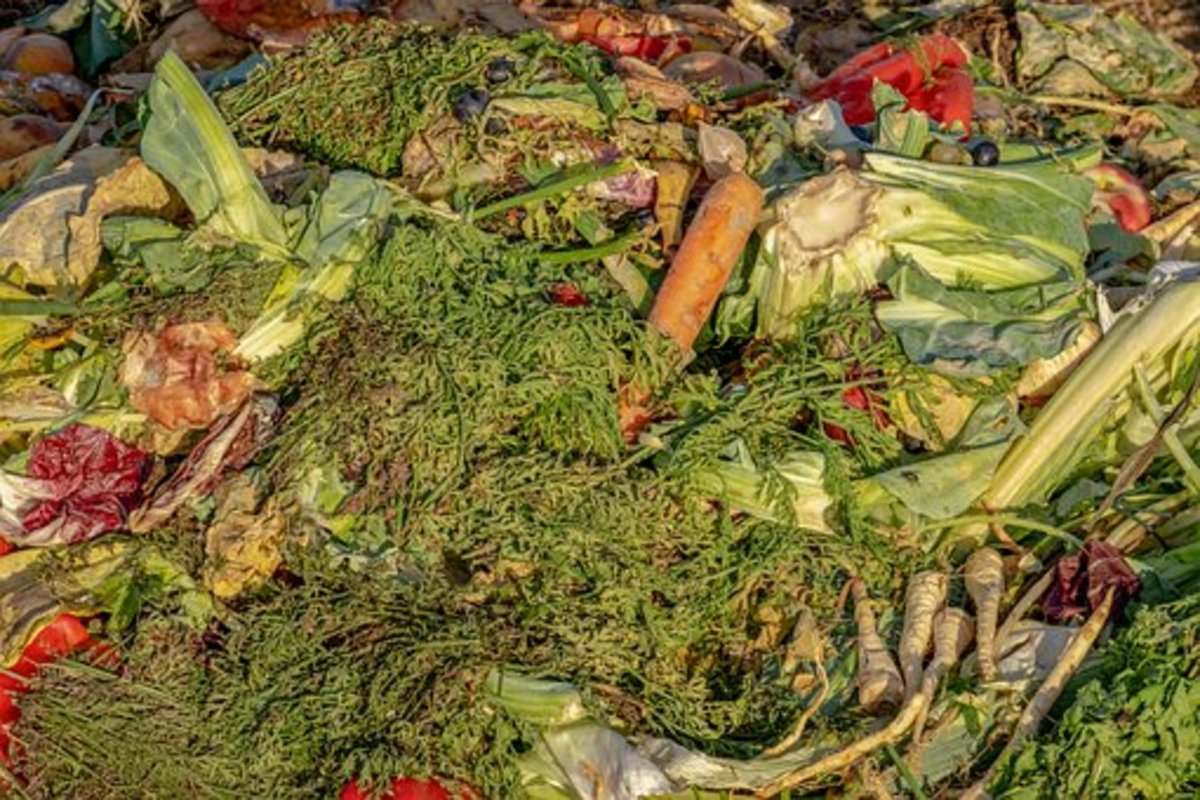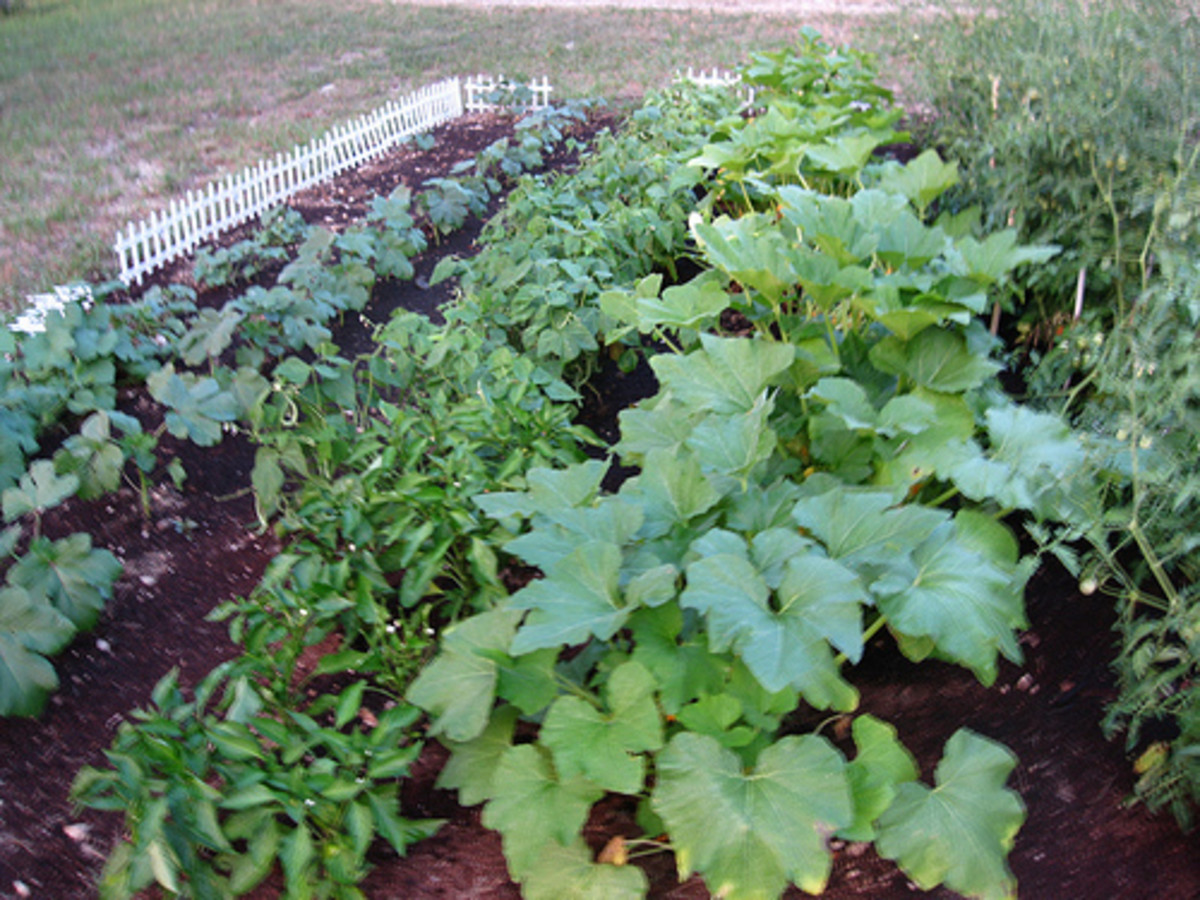5 Uses for Coffee Grounds
Coffee grounds and tea bags

Grounds for gardening
Adding coffee grounds to the compost are a good way to get organic matter into the garden. Getting used coffee grounds from a coffee-house is a good idea.
Coffee houses are usually happy to have a way to dispose of coffee. I was regularly retrieving about 5 gallons of coffee and filters from a local coffee shop. HOWEVER, more and more people are taking advantage of the organic matter from coffee houses.
The competition for this organic matter has picked up. More and more gardeners are collecting the used coffee and tea remains from coffee shops. I am happy to see any and all organic matter going back into the soil.
Water plants with cold coffee

1. Compost
Coffee grounds can go directly into the compost pile, filters and all. So can egg shells, banana peels and any non-meat organic kitchen waste.
Grounds provide small amounts of phosphorus, potassium, magnesium, and copper. More than nutrients, they add porosity, that is the ability of the soil to hold water.
Most of the acid in coffee leaches out when making coffee. Regularly adding a lot of coffee grounds could raise the soil acidity a smidgen. Typically the level is minuscule. So, adding coffee grounds to the soil near azaleas and blueberries can’t hurt but will not increase the results of a soil test..
Any and all grinds of coffee are helpful
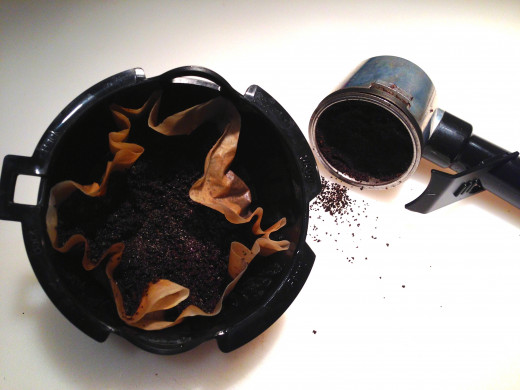
2. Mulching with coffee grounds
Layer a half-inch to 1 inch of coffee grounds around tomato and pepper plants to retain moisture and control weeds. Use them as you would leaf mulch or straw. If you have sandy soil or clay, adding organic matter will help nutrient and water holding capacity.
If you have access to lots of coffee grounds, use it a sheet mulch. Spread a half-inch layer over a large area. A thin layer works best. Thicker layers of coffee grounds and trigger the growth of unsightly molds. It is not harmful and you can just rake or redistribute the grounds.
Using coffee grounds
Do you use coffee grounds in the garden?
3. Coffee makes tea for the garden
Make coffee grounds “tea” as liquid fertilizer. Add at least 3 cups of grounds to the bottom of a five gallon bucket. Fill with water and allow the “tea” to steep for at least two days. Pour the brew on plants as you would liquid fertilizer.
This is a handy way to add nutrients to hanging baskets. This method is mild enough that you can use it weekly when watering containers and hanging baskets.
It's all compost sometime
If this is coffee, please bring me some tea; but if this is tea, please bring me some coffee.
Abraham Lincoln
4. Soil amendment
Add coffee grounds to the garden soil by working them into the top six to eight inches of soil. It is rare that a home gardeners can add too much organic matter to garden soil. Keep coffee ground additions to the soil to about 20%. It will loosen up the soil and help maintain consistent soil moisture. Consistent water levels may reduce tomato cracking.
Specialty coffees make great compost

5. Snail Nail
The USDA Agricultural Research Service (ARS) has seen promising results using 1 and 2 percent caffeine solutions to kill snails and slugs. Research showed the 2-percent caffeine solution more effective than metaldehyde, a common pesticide used to control slugs and snails.
Instant coffee is about 0.05 percent caffeine. Normal brewed coffee is a little stronger. The coffee I make is definitely strong enough to kill a slug. Though I have no idea where you find coffee cups that small.
Ask a business that serves a lot of coffee
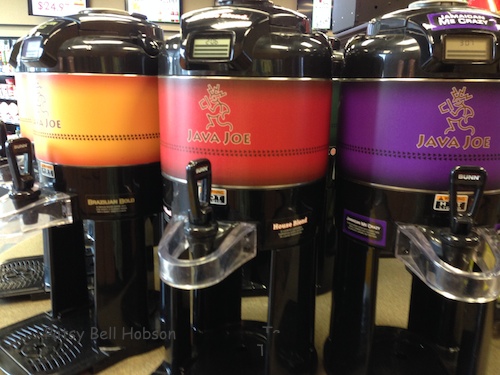
Sources
A special thank you to my local Panera Bread Company in southeast Missouri. In the cool weather, I can pick up lots of used grounds and filters. As summer approaches, competition for coffee grounds picks up rapidly.
Starbucks is very generous, used coffee grounds are free for the taking. Local restaurants that do a big breakfast and coffee business will have free coffee grounds (and egg shells, maybe?)
If you are a regular customer, and try to accommodate their schedule, it becomes a better partnership. Speedy food service in immaculate restaurants is their business. Gardening and composting is yours.
I our part of the country, my favorite Gas Station chain is Signal. They seem to sell as many gallons of coffee as they do gas. Ask when they dump the coffee and can you come get it. Ask if you should bring a clean container or trash bags when you come.
Be courteous and grateful, come when they suggest. Fit into their schedule. They are doing you a favor.
Fastest Coffee in town
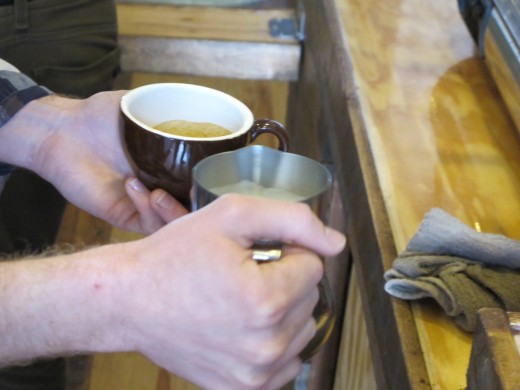
Coffee facts and factors
- A cup of coffee is acidic, but the used coffee grounds are not. Making a cup of coffee, leaches the acid out of the coffee grounds. What's left are used coffee grounds with a 6.5 – 6.8 pH.
- Coffee grounds decompose, turning into compost very quickly because the grounds are small pieces. Take a lesson from small grounds and chop or shed all compost contributions. The smaller the pieces, the quicker it will compost.
-
negating the need for additional sources of these nutrients. In addition, each cubic yard of coffee grounds provides 10 pounds of nitrogen (0.09% available).
-
Adding coffee grounds to the soil will improve the availability of phosphorus, potassium, magnesium and copper, meaning you will not need to add additional sources for these nutrients.
-
I don't have scientific proof, but I do know that I have a lot less slug problems since I have been using coffee grounds around the strawberry bed.



